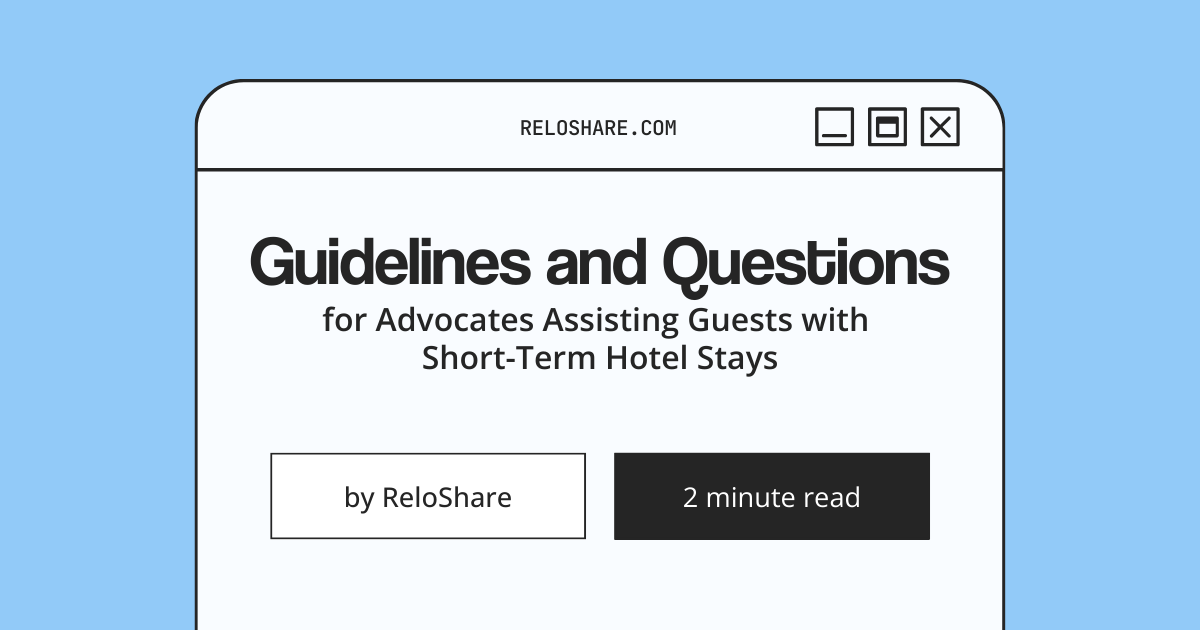Assisting someone with a short-term hotel stay? It's essential to ensure safety, comfort, and a guest-focused experience. Here's your comprehensive guide:
Section 1: Before Booking - Know Your Needs
Before locking in that reservation, ensure you understand the guest's needs and preferences.
- Location Safety: Identify areas the guest would feel most safe in.
- Proximity: Understand their need to be near work, school, healthcare facilities, or religious institutions.
- Transport: Does your guest require parking? Are public transport options nearby?
- Accessibility: Cater to any mobility or transport needs. Are local amenities easily accessible?
- Language: Ensure the hotel can accommodate the guest's language requirements.
- Room Specifics: Tailor to special requests, like pet-friendliness or smoking rooms.
- Hotel Checks: Are there events or situations that could be triggering? Be wary of hotels linked with issues like human trafficking.
- Safety Measures: Check hotel policies concerning security and room access.
- Final Confirmation: Ensure the guest is comfortable with the hotel choice in every aspect.
Section 2: Preparing for Arrival
A smooth check-in experience sets the tone. Here's what to prep:
- Emergency Exits: Familiarize the guest with exit routes and parking.
- Hotel Information: Clarify check-in/out timings, amenities, and any policies.
Section 3: Ensuring Safety & Compliance During the Stay
While the guest's stay should be comfortable, safety and compliance cannot be overlooked.
Safety First:
- Discuss any potential threats, especially if there's a risk from an abuser.
- Offer resources on cell phone safety, location tracking, and secure social media use.
- Ensure the guest knows how to contact emergency services and their agency.
- Discuss the need for an alias on the reservation.
Hotel Etiquette:
- Follow Rules: Remind guests of the importance of adhering to hotel guidelines.
- Maintain the Room: Rooms should be kept in their original state.
- Substance & Weapons Policies: Familiarize the guest with the hotel’s stand on weapons, drugs, and smoking.
- Discuss any additional cost that could be incurred from food available within the room or room service.
Confidentiality & Privacy:
- Ensure location confidentiality if needed.
- Educate about the hotel's policy on unauthorized guests.
- Discuss if the client shares any digital accounts with location services with the abuser. (ex. Uber/Lyft, UberEats/DoorDash, Snapchat, Find My Friends, etc.)
Lifestyle Guidelines:
- Room Occupancy: Be transparent about who is staying.
- Visitor Protocols: Know the drill for registering visitors.
- Quiet Hours & Other Policies: Familiarize guests with noise, pet, and smoking guidelines.
Personal Responsibility:
- Belongings: Guests should be responsible for their items.
- Dependent Care: Guests should oversee their dependents.
Emergency Protocols:
- Know the emergency contact process.
- Understand welfare check procedures for unresponsive clients and property retrieval processes.
In a nutshell, this guide is a roadmap to a safe, respectful, and guest-focused experience. By sticking to these guidelines, advocates can ensure their guests have a pleasant hotel stay. Whether you're an advocate, a guest, or a concerned friend, this guide is your companion to a worry-free stay. Safe travels!


